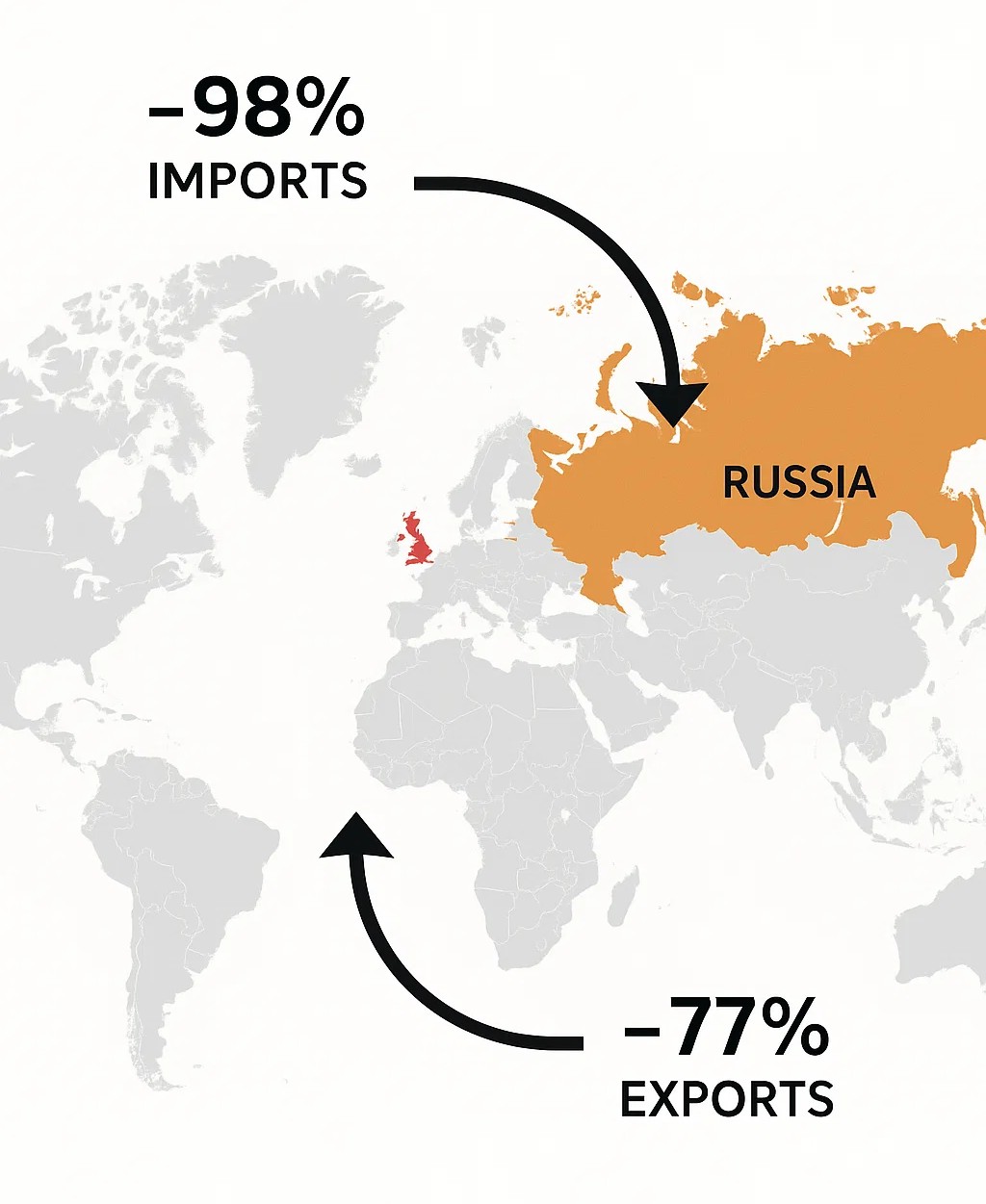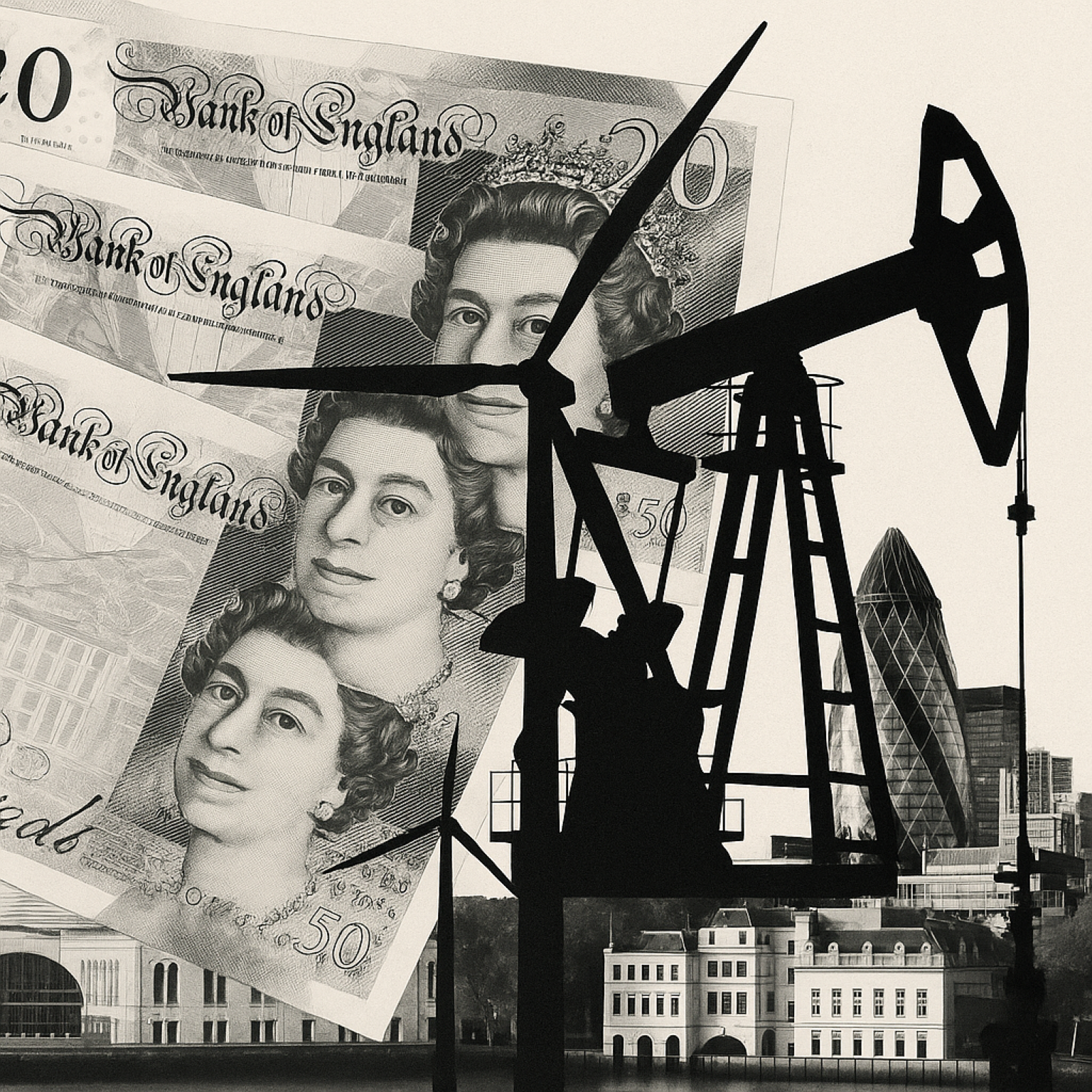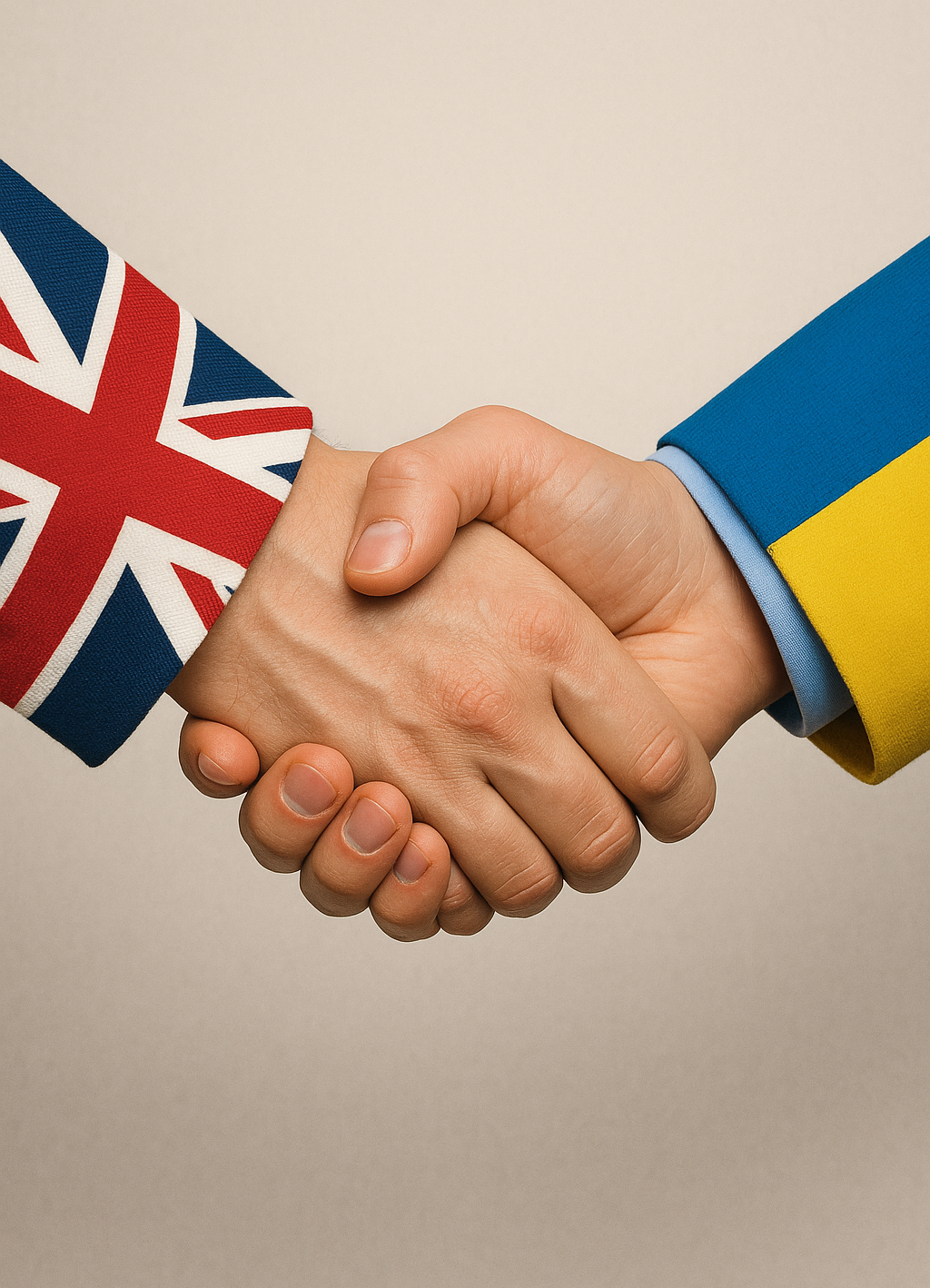Since the onset of the Ukraine conflict, the United Kingdom (“UK”) has led the charge in imposing sanctions on the Russian Federation. In this post, we consider general aspects related to the impact of Russian sanctions on the UK, from trade and inflation to future economic opportunities.
The Impact of UK Sanctions on the Russian Federation
Key Points:
- The UK has frozen over £25 billion in Russian assets.
- International efforts have locked away more than $400 billion of Russian wealth.
- UK-Russia trade has plummeted: imports have dropped by 98%, and exports by 77%.
- Russia faces budget deficits, inflation, and a growing reliance on third parties.
Russia’s Economic Resilience
Despite crippling sanctions, Russia’s economy has shown some resilience, recording modest growth in 2023 and 2024. However, the country still faces long-term challenges, including a brain drain and stunted growth prospects.

How have sanctions affected the UK economy?
Trade:
Prior to the conflict, the UK’s direct trade with Russia was limited, so the sharp drop in imports and exports has not caused major disruption. For example, energy imports from Russia have fallen by 98%, but the UK has diversified its energy sources.
Inflation:
Sanctions and the wider conflict have contributed to global inflation, pushing up prices in the UK. This adds to the economic challenges already posed by Brexit and the pandemic.
Investment:
London’s financial markets are now more cautious, with increased scrutiny of Russian-linked investments. While this could deter some foreign investors, it also strengthens the UK’s reputation for due diligence.

Future Opportunities: Rebuilding and Partnerships
Looking ahead, the UK could benefit from new trade partnerships and economic opportunities in post-war Ukraine and Eastern Europe. This positions the UK as a leader in regional recovery and reconstruction.

Conclusion
UK sanctions on the Russian Federation have played a vital role in limiting the Russian war capabilities, but they come with economic trade-offs. While Russia faces significant challenges, the UK has managed to cushion the blow thanks to its limited reliance on Russian trade. Inflation and investment caution remains, but new opportunities are on the horizon.
If you or your business is affected by sanctions related to the Russian Federation and you need urgent help, we can assist. Linkilaw Solicitors offers discreet, expert-led representation in all matters of sanctions law—from OFSI licensing to designation challenges. Schedule a confidential consultation with our sanctions team today.







